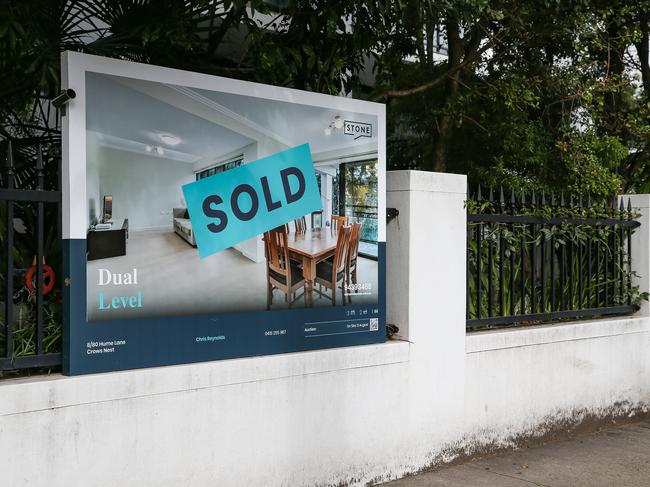What to do if your new home buy turns out to be a dud
With average Australian property prices soaring over the past decade, real estate seems like a sure fire way to print money. But what if your home isn’t?

Property
Don't miss out on the headlines from Property. Followed categories will be added to My News.
With average Australian property prices soaring over the past decade, real estate seems like a sure fire way to print money. Nonetheless, not every investment is a cash cow, occasionally there are lemons.
Identifying a dud before buying is obviously the key to a successful strategy. However, what happens if you’re a few years in and your investment starts turning sour?
DO YOU HAVE A DUD?
Property guru, buyer’s agent and presenter Chris Gray of Your Empire, says the first lesson to investing is to not believe everything you read.
“You might be reading that the property market has risen in value, but potentially your property hasn’t gone up in value in the last five or 10 years. That’s a major sign something’s not right,” Gray says.
“It’s easy to follow values
today online and keep up to date. While you might not be able to get exact numbers, you can get a ballpark idea.
“Also, if the bank is hesitant about refinancing you, then they might know something you don’t. They’ll look for ‘black spots’ where they don’t want to take risks, such as mining towns, possibly holiday towns or high rise buildings.”

WHEN THINGS GO SOUR
Even if an investment is deemed a dud, there still could be ways to turn the ship around.
“Do the numbers to see what you can change. Speak to rental and sales agents, as well as independent valuers, to know what tenants want,” Gray says.
“If it needs major construction, then the biggest cost is holding that dead property while plans go through council for possibly six to 12 months. You might decide it’s not worth renovating, but if you’ve got a DA (development application) approval at least that home will be worth more than one with no plans in place.”
Although location may be the one thing you can’t change, there is hope in an undesirable neighbourhood.
“Certain suburbs can evolve, and it can happen quickly. What was once an ugly duckling can become popular. Maybe an area is getting rezoned for redevelopment, or new infrastructure could be coming in,” Gray says.
And owners with a problem property have the power to take matters into their own hands.
“Being on the inside can help. Get involved, go to council meetings, join the strata committee, and ask questions to see where there are possibilities for change.”
TIME TO CUT YOUR LOSSES
Investors who suspect their investment property is underperforming should ask themselves some tough questions: Are the numbers still stacking up? Would I buy the same asset today? Can I add value (without over capitalising) to create a better return? Might the property perform better in the medium to long term?
“Nobody wants to admit they’ve made a poor investment decision, especially as most people do make money in property,” Gray says.
“But the stupid ones are those who avoid reality.
“It’s better to take quick action, because that will lead to a better result in the end. There’s nothing wrong with learning from your mistakes because then, ideally, you won’t make that mistake again.”
Canstar’s editor-at-large, Effie Zahos, says having to offload an underperforming property has some benefits.
“Anyone selling at a huge profit will be liable for a hefty capital gains tax bill, but selling at a loss may help ease the decision as that tax may be non-existent,” Zahos says.
AVOIDING AN INVESTMENT DISASTER
Zahos says in real estate its comes down to buyer beware.
“You can never judge a book by its cover. Always be sure to get a building and pest inspection before you commit to buying any property. Serious structural damage can be very well hidden.”
And doing a deep dive into the paperwork is just as important, especially for apartments.
“If you’re buying a unit you must do a strata inspection. This gives you important information including the financial position of the building and any other issues with the complex or its tenants,” Zahos adds.
She says additional real estate red flags are properties which have been sitting on the market for more than the average time frame for the area as well as any “bargains”.
“If it seems too cheap, you’ve got to ask yourself why.”
Finally, extra homework for savvy investors should include studying the history of the suburb or region for floods, fires, crime or any other significant phenomenon.
“Not only do these issues pose a problem if disaster strikes, it could mean huge insurance premiums each year,” Zahos says.
More Coverage
Originally published as What to do if your new home buy turns out to be a dud




